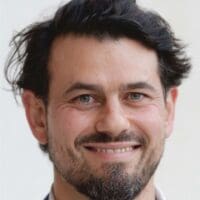Mindfulness is practiced and cultivated through the training of attention. Not coincidentally, across thought traditions, attention and its (dys)regulation has long been theorized to underlie various mental habits and biases, common forms of suffering, and well-being. Yet, despite this compelling theory, empirical data supporting these foundational ideas about the nature and function of attention are surprisingly modest. Accordingly, this talk will reflect on Berstein’s lab group’s efforts to develop novel methodological approaches to the study of the forms and expressions of attention that may be of importance for suffering, flourishing, and mindful awareness. First, this lab’s work to conceptualize, measure, study, and (re)train (dys)regulation of attention as a dynamic process in time will be shared. Second, a novel approach—the Simulated Thoughts Paradigm—to experimentally measure, study, and train internal attentional processing of one’s thoughts will be shared. Third, a novel behavioral and phenomenological methodology—the Mindful Awareness Task—to measure the objects and temporal dynamics of present moment attention and awareness
to internal experience during mindfulness meditation will be shared. Finally, promising translational therapeutic implications of this work, such as the development of the Mindful
Trauma Recovery for Refugees program—a mindfulness-based intervention, socioculturally
and clinically adapted to promote trauma recovery and well-being among forcibly displaced refugees—will be briefly discussed.

Amit Bernstein, Ph.D.
University of Haifa
Convening Faculty, Grantee, Planning Committee Member, Reviewer
Amit Bernstein (Co-Chair), PhD, is a Professor of Psychology, Director of the Observing Minds Lab at the University of Haifa, and member of the Israel Young Academy. Amit is interested … MORE

